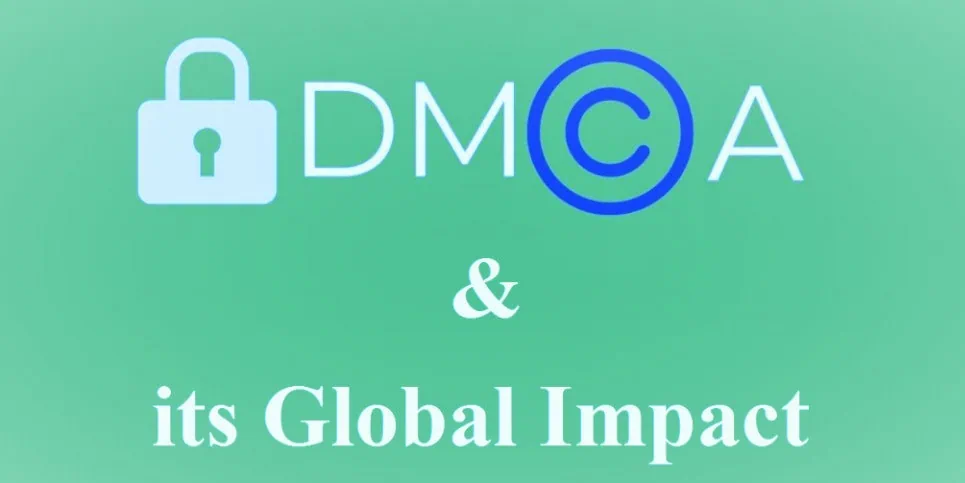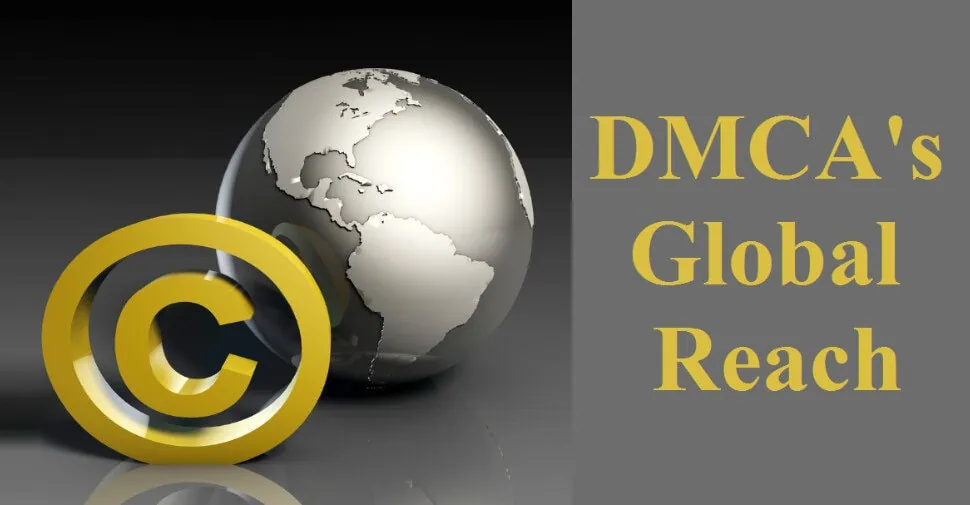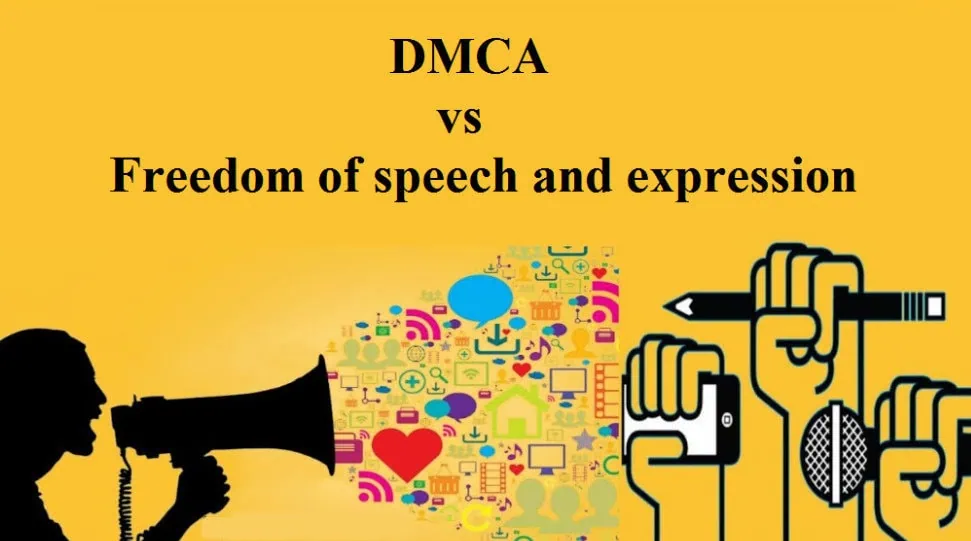Digital Millennium Copyright Act, abbreviated as DMCA, is a subset of the US Copyright Law. It protects content owners from copyright infringement. The Act defines the process to remove stolen content or material from the internet.
DMCA is an integral part of the web hosting world. This is because a major portion of online content gets delivered through these hosting services. That is why many hosting providers integrate DMCA policies into their service terms to comply with the Act.
Hosting providers can suspend the services of website owners for alleged copyright infringement. DMCA offers protection from infringement liabilities to web hosts who promptly act upon legitimate takedown notices.
Therefore, it is extremely important to understand DMCA regulations and their impact on hosting services.
What is the DMCA?
DMCA provisions relate to the rights and obligations of copyright owners who believe that their rights are infringed. These provisions also cover the rights and obligations of web hosting providers on whose servers the stolen materials are hosted.
DMCA plays a pivotal role in protecting intellectual property online. The Act aims to offer an easier way for copyright owners to ensure control and distribution of their materials.
DMCA provides an efficient resolution process for quick takedown of stolen content. Therefore, content owners have an alternative recourse for action where they can avoid dragging the matter into court.
DMCA’s Impact on Web Hosting Providers
DMCA offers immunity to web hosting providers and doesn’t hold them responsible for infringement if they act responsibly. Web hosts need to post a notice of intent on their websites to comply with DMCA provisions. They can also incorporate these provisions into their terms of service so that website owners use their hosting services accordingly.
Web hosting providers must implement some procedures and policies to comply with DMCA. They must appoint an agent to act diligently and promptly on the receipt of DMCA takedown notices.
The authorities generally send a takedown notice both to the website owner infringing the law and his hosting provider. If the offender doesn’t remove the stolen content, it is the host’s responsibility to remove the content from his servers.
In some cases, the website owners might have proof of not infringing the law at all. They can, then, file a counter notice for a content putback. Even in such cases, hosts cannot keep the disputed content on their servers until the authorities pass a final decision.
DMCA also carries Safe Harbor provisions for web hosting providers. These provisions offer immunity from liabilities associated with copyright infringement performed by their customer. Web hosts need to meet a few conditions to qualify for the Safe Harbor provisions:
- They must offer a mechanism for the submission of takedown notices to copyright holders.
- They need to adopt policies for terminating the hosting accounts of repeat offenders.
- They must not be gaining anything financially from infringing activity performed by their service users.
- They should not have any prior information about stolen content getting hosted on their servers.
The hosting providers will get immunity from DMCA liabilities if they fulfill all the above conditions. The authorities will not take any legal action against them.
Global Reach of DMCA
DMCA is purely a US law but its reach extends outside of the US borders. Many web hosting companies operate globally but are registered in the US. So the law might be binding on the host even when all its customers belong to other parts of the world.
All countries have their own unique copyright laws and the aim of these different laws remains the same. That is why non-US web hosting providers consider DMCA too while following the copyright law prevalent in their respective countries. They want to fully protect the rights of copyright holders no matter what provisions they follow.
Technically speaking, web hosting providers registered and operating outside of the US do not need to comply with DMCA. However, many of them do follow the US law as an ethical practice.
The adoption of DMCA by non-US web hosts leads us to the extraterritorial impact of the US copyright law. The authorities can send content takedown notices to anyone violating the DMCA regulations. Most non-US hosting providers maintain a DMCA protocol to manage copyright infringement on their servers.
Additionally, the US authorities behind the DMCA maintain good relationships with web hosts around the world. This allows them to protect the rights of copyright owners even outside the US borders. DMCA authorities generally get the stolen content removed from a website within 5 days no matter where it is hosted.
All countries follow their internal copyright laws but they also respect the US law. Due to this reason, hosting companies registered in other countries also take care of DMCA along with their local provisions.
Web hosts operating in the UK, Germany, India, Australia, and all major nations respond promptly to DMCA takedown notices. However, in some regions, copyright laws are not as strict as they are in other parts of the world. Hosting providers in these offshore areas offer DMCA-ignored hosting with quite liberal service terms.
DMCA compliance is not mandatory in offshore countries due to a conflict of interest with the nation’s copyright laws. These countries generally have very liberal copyright laws and support freedom of speech as well. So the web hosting companies registered and operating in these regions ignore all DMCA takedown requests.
Challenges Faced by Web Hosting Providers
Web hosting providers face a lot of challenges when incorporating DMCA into their service terms. They need to take care of many things before implementing the provisions on website owners using their servers. Here are some of the challenges that web hosts face and need to address before complying with the law:
Balancing Act Between User Rights and Copyright Enforcement
Though it is important to protect against copyright infringement, hosting providers also need to safeguard user rights. Many website owners want to spread knowledge or share their opinions on different subjects like culture, politics, religion, etc. In such cases, web hosts need to find the right balance between user rights and copyright enforcement.
The internet was discovered to share information throughout the world. If a law defeats its very purpose, it isn’t doing any good. That is where these service providers step in to determine how much to follow the guidelines and where to stop.
The purpose of copyright enforcement is to protect the rights of content owners. But it shouldn’t be done at the cost of others’ freedom of speech. Therefore, web hosting providers have a huge responsibility on their shoulders to maintain a balance between copyright enforcement and user rights.
Common Issues and Complications in Implementing DMCA Policies
Hosting companies face many common issues and complications in implementing DMCA policies. The act endangers the fair usage rights of the public by granting all the power to copyright owners. This makes it difficult for the public to use existing content even for legitimate purposes.
Another complication with DMCA implementation concerns its aversion to scientific research and free expression. Web hosts are in favor of free expression while the US copyright law makes it difficult to express opinions freely. This leads to issues in implementing DMCA outside of the US.
Legal and Practical Challenges in Global Compliance
Hosting providers also face many legal and practical challenges in complying with the US copyright law globally. Every country has its own copyright laws which might or might not be similar to the US Copyright Law.
Some nations believe in giving more freedom of speech to their residents than others. Hosting companies registered in such countries do not want to adopt DMCA to comply with their own local laws. They tend to promote freedom of expression for their service users rather than comply with the DMCA provisions.
Many web hosting providers also face challenges in complying with DMCA at the global level. This again happens because of the unique copyright laws prevalent in different countries. Website owners will consider the legalities existent in their region and can challenge the DMCA takedown notices on that basis.
Best Practices for Web Hosting Providers
Web hosting providers need to follow some best practices to effectively comply with the US copyright law. Here are a few major aspects they must work on:
Developing Robust DMCA Compliance Policies
Web hosting companies must focus on developing robust DMCA compliance policies. They can choose to integrate these policies into their own terms of service. This will allow them to take strict action against those website owners who repeatedly offend their usage rules.
Along with creating and maintaining valid DMCA compliance policies, hosting providers can also apply to become DMCA Compliant. The official DMCA website offers a compliance program that informs copyright owners about your commitment to protecting their rights. They will know that you have a DMCA policy, follow an approved compliance process, and ask for specific information upfront.
Maintaining a valid DMCA compliance policy will allow web hosts to suspend the accounts of defaulters. They can emphasize the importance of following their DMCA rules by temporarily or permanently terminating the hosting services of offenders.
Training Staff on DMCA Procedures
Web hosting providers need to maintain a separate department to handle copyright issues. They can either hire an individual or a team depending on their scale of business. The host needs to impart training on DMCA procedures and continually update its staff about all recent developments.
The hosting provider’s DMCA team must be aware of the procedure to handle Takedown claims. It is necessary to make this team easily accessible to the DMCA authorities and the public at large. Therefore, hosts must share a dedicated contact number and email address of the person or team handling DMCA Takedown requests.
Having a dedicated DMCA compliance team will allow the host to resolve all takedown claims quickly. It also helps in building trust among copyright owners and content creators. Additionally, this practice keeps the hosting company immune from all copyright infringement liabilities.
Collaborative Approaches Between Hosts, Content Creators, and Rights Holders
Hosting companies can also collaborate with content creators and copyright holders to combat piracy issues. They can allow right holders to directly contact their copyright enforcement team to report any infringement. The web hosts can promptly remove the stolen content from their servers after a quick verification of the infringement claim.
Such an approach suits well in handling copyright issues of user-generated content. It will be similar to how YouTube handles infringement claims where tons of user-generated content is added every day. A collaborative approach of hosting providers and copyright holders will offer a quicker solution for each infringement offense.
Conclusion
DMCA is a US law offering protection to copyright owners and content creators from copyright infringement. Though it is applicable in the US technically, its impact extends beyond the American borders.
Many web hosting providers across the globe include DMCA provisions in their regular terms of service. They follow both their local copyright laws and the US law to avoid any liabilities connected to copyright infringement.
Web hosts face numerous challenges in implementing the DMCA law outside of the US nation. Along with some practical issues, they need to consider the law prevalent in their country over and above the US law. Hosts must also balance between user rights and copyright enforcement laws.
With the constant rise in interest in sharing content online, DMCA will continue to play an important role in hosting. Its provisions will keep on offering guidance to web hosting companies on effectively managing online content globally. With experience, hosting providers will start understanding how to maintain the right balance between free speech and DMCA enforcement.











0 Comments